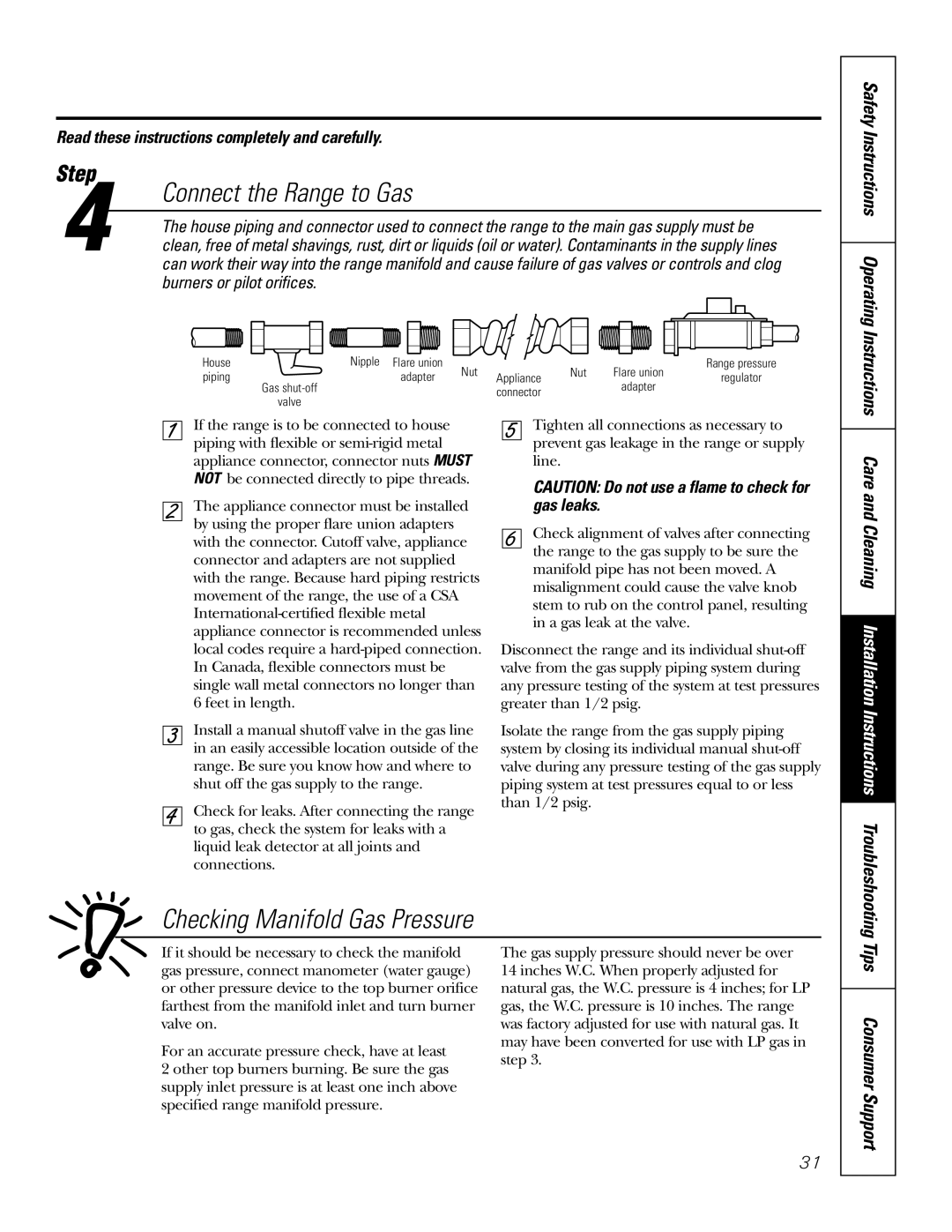RGA624, RGA620 specifications
The General Electric (GE) RGA620 and RGA624 are advanced radiation survey meters designed for professionals in nuclear facilities, environmental monitoring, and emergency response. These devices offer robust performance and innovative features that enhance user experience and ensure precise radiation detection.At the core of the RGA620 and RGA624 are highly sensitive Geiger-Müller (GM) tubes, which allow for the detection of alpha, beta, and gamma radiation. This versatility makes them suitable for a wide range of applications, from laboratory research to field measurements in emergency situations. Both models feature a broad energy response, enabling accurate detection across varying radiation energies.
One of the standout features of the RGA620 and RGA624 is their digital display, which provides clear and easily readable results. The intuitive interface allows users to quickly access measurement functions, change settings, and view real-time data. Alongside this, the devices are equipped with audible alarms, providing instant alerts when radiation levels exceed predefined thresholds, ensuring timely response during critical situations.
Both models utilize advanced data logging capabilities, enabling users to store measurement data for future analysis or compliance reporting. This feature is particularly valuable in regulatory environments where documentation of radiation levels is crucial. The RGA620 and RGA624 can also connect to external software for further data management, enhancing operational efficiency.
In terms of durability, the RGA620 and RGA624 are designed with rugged housing that meets stringent industrial standards. Their lightweight and portable design make them suitable for fieldwork, allowing professionals to conduct radiation surveys effortlessly. The devices are also designed for easy maintenance, with replaceable batteries and straightforward calibration processes.
Enhanced connectivity options, including USB ports, allow for easy data transfer and integration with other monitoring systems. This adaptability ensures that the RGA620 and RGA624 can be an integral part of a comprehensive radiation safety program.
Overall, the GE RGA620 and RGA624 are exemplary tools in radiation detection technology. Their combination of sensitivity, user-friendly features, and robust design make them essential for professionals working in environments where radiation monitoring is paramount. With these instruments, users can ensure safety, compliance, and effective management of radiation risks.

